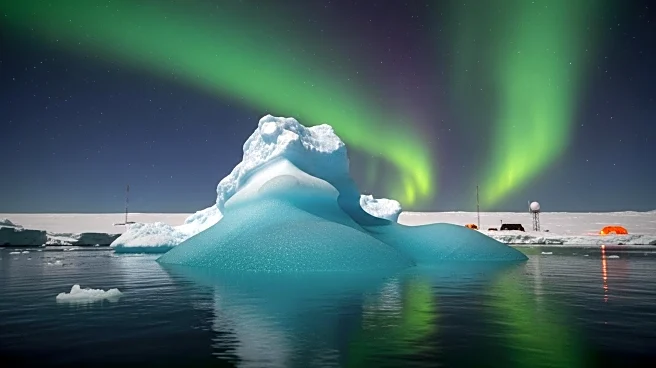What is the story about?
What's Happening?
A team of scientists, including NPR climate correspondent Alejandra Borunda, conducted an expedition to Greenland's northernmost island, Inuit Qeqertaat, also known as Kaffeeklubben Island. The research aimed to identify plant species at the island's northernmost point. The expedition highlighted the challenges and realities of conducting scientific research in extreme environments, involving navigating through mud and ice.
Why It's Important?
This scientific exploration is crucial for understanding the biodiversity and ecological dynamics of one of the most remote and extreme environments on Earth. The findings could provide insights into how plant life adapts to harsh conditions, contributing to broader ecological and climate change studies. Such research is vital for predicting how ecosystems might respond to global warming, which is particularly relevant for polar regions experiencing rapid climate shifts.
Beyond the Headlines
The expedition underscores the importance of field research in advancing scientific knowledge, particularly in underexplored regions. It also highlights the logistical and environmental challenges faced by scientists working in remote areas. The findings from such expeditions can inform conservation strategies and enhance our understanding of global biodiversity patterns.
















